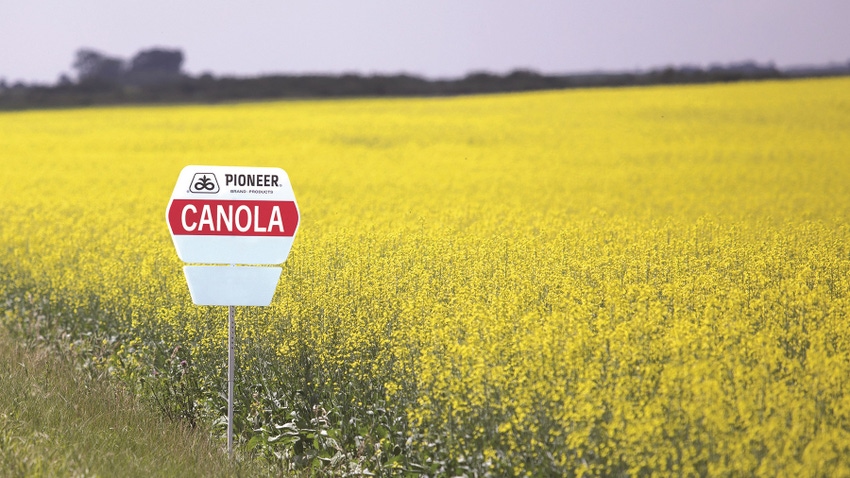
Canola is a crop often considered synonymously with Canadian production, but a cold climate is not a prerequisite for the winter oilseed’s production. A corporate collaboration between Corteva, Bunge and Chevron U.S.A. is setting canola up to become a Southern staple - for more than cooking in the kitchen.
On March 4, Bunge and Chevron announced approval for a new addition adjacent to an existing joint-owned plant in Destrehan, La., south of Baton Rouge. The plant specifically will process oilseeds, including soybeans, canola and CoverCress, to provide feedstocks for renewable transportation fuels.
Early estimates for the plant’s required oilseed quota, which is projected for completion in 2026, could be as high as 800,000 to one million acres of canola. Southern producers will soon have the opportunity to turn canola from a reliable option for winter ground cover into a source of cash.
Fuel demand
“The upgrades they're doing at the Destrehan facility south of Baton Rouge will enable them to crush several soft oil seeds, such as winter canola, penny cress, and camelina,” said Jonathan Siebert, an Corteva area agronomy lead for the Corteva’s South Delta and Southwest regions. “There will be a need for all of these additional feedstocks in order to supply the renewable fuel demand.”
Corteva’s portion of the partnership focuses on providing winter canola hybrids from Pioneer seeds and agronomic accessibility for canola producers, due in part to the crops history and oil producing capabilities.
“The reason we're focused on winter canola is primarily because it's more of an established crop than any of the others,” Siebert said. “We have very robust breeding programs around improving winter canola hybrids.”
Winter canola fills unique opportunities in the Delta region, especially for producers who currently grow soybeans. Soybeans and canola perform well in similar soil types, use similar equipment and have complimentary growing seasons.
To fill the new processing facility capacity, Pioneer is focused on winter canola specifically for its ability to produce the most oil efficiently in a double cropping system.
“At the end of the day, that’s what Bunge and Chevron are after, is that oil return,” Siebert said. “Per pound of winter canola, there's a greater percentage of oil than any of these other crops.”
Agronomic support
In 2023, Pioneer began agronomic support for new and returning canola producers primarily in Kentucky and Tennessee to help expand canola acreage with plans to expand further into the Delta region in 2024 through 2026.The support comes from experts and farmers already in Pioneer’s longstanding canola breeding program.
“We've started doing some pretty robust hybrid testing throughout the South and even out into Texas, Oklahoma and Kansas, to look at adaptability of some of these hybrids,” Siebert said. “All of this germ plasm is coming out of our breeding programs in Europe, but we've been doing this for several years, and we've identified hybrids that are well adapted to this area.”
Producers interested in taking advantage of the increased canola marketing options, or even establishing it into a rotation to provide winter cover, need not fear making the leap to a new crop. From variety establishment through harvest, expert help is available.
“In this whole program, when you look at what Chevron, Bunge and Corteva are bringing to the table, Corteva provides the Pioneer seed and agronomic expertise in working with those growers to make sure, for example, that they understand equipment needs - what equipment they may have today that could serve a dual purpose,” Siebert said. “Agronomy expertise is really the space we're working in - the basic agronomy from planting seed to insecticide and fungicide management, all the way through harvest.”
About the Author(s)
You May Also Like






